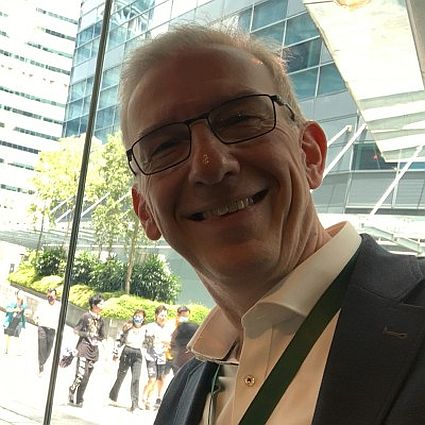Preface: I first met Rene Voorhost years ago when he was the Nordics/Benelux sales manager for National Instruments. I don’t recall exactly how we met, I think he saw me speaking and later reached out to say, “Dave, I think there is a better way to think about these things.” Since then, he’s become a thought partner in helping me develop tools and models on driving sales performance. Many of you know my Sales Execution Framework (SEF), it wouldn’t have been possible without Rene’s deep thinking on these topics. Here’s his take:
Why am I obsessed with Selling?
I am not sure if I could say I am obsessed with selling, I guess it depends on the perspective one has about “selling”.
What I am passionate about is people, technology and making impact.
Therefore, I deliberately chose my education to be focused on the fundamentals of technology and pursued my education in electronic design.
Early in my career I started engineering roles like electronic engineer and applications engineer and realized what motivated me most was help people solving problems that allowed them to continue or improve their business.
I enjoyed it even more if I could go onsite, to experience, assess then solve the problems at first hand in close collaboration with my customers.
This behavior caught the attention of a regional director early in my career and he encouraged me to pursue my career in sales.
After some reflections I realized that I would be able to do more of what I really enjoyed, going onsite to customers in the technology space to help the solve problems that would make an impact on them, their business, and our business.
I was hooked, I found my career and never left sales ever since.
Now, let’s get back to the definition of “selling”. If one perceives selling as pushy sales people that are trying to sell things or services without even trying to understand what problem their customer has and how they could make an impact in their lives or business, that is not the type of selling that makes my hart beat faster, actually I am seriously annoyed when those type of sellers waste my precious time.
On the other hand if the definition of selling is customer centric, where “the seller” genuinely tries to first understand the problem, gap or opportunity someone or a business is facing, then through his or her due diligence, network and domain expertise brings a high value and high impact recommendation to the table for which he or she can charge profitable revenue, that is the type of “selling” I am obsessed about.
As of today, I am more then 20 years into my sales career, started as sales engineer and now sales director and have no intention to move away from my sales career for the foreseeable future.
What is interesting is that my three key elements of passion (people, technology, and impact) are still standing, actually I continued to expand on all three of them throughout my career.
As a sales engineer I worked directly with my customers engineers (people), leveraging my educational background and technical domain expertise (technology), solving technical problems that would unlock their business and sometimes their careers (impact).
As a sales leader, I work mostly with my customers through the people in my team (multiplier effect), leveraging my experience and expanded domain expertise (business and technology), solving our customer’s business challenges that we unlock through the capabilities we can provide to our customers (impact).
The more I am getting into “selling” the more I am getting to expand on my three pillars of passion and passionately engage with the people around me to make an impact in their lives, their business and ultimately the world.
My wife tells me I don’t have a job, I have a hobby which I get paid for. She is right that is how it feels to me, “Selling is my hobby” and I am obsessed with “Selling”.

I see an analogy and connect the transaction of selling to the interaction of a patient with a doctor.
The doctor based on his expertise tries to diagnose the problem, the causes of irregularities in the patient
But has limitations of detecting the external indicators, symptoms and tries to go deeper by questioning the patient
and communicating with him.
Ideally the patient also should have the equivalent communication skill to clearly explain the situation and the problem
difficulty he faces.
This would help in proper diagnosis and resolution of the problem
Thanks for the thoughtful comment Ravindra. I think there is a slightly different view and using the medical analogy is very powerful. It’s probably unreasonable to think the patient has deep skills in communicating the issues they are experiencing. It’s incumbent on the doctor to connect with the patient, at their level, to understand, diagnose, and make recommendations. After all, the doctor has much deeper expertise than the patient.
In selling, we face the same challenge. The customer can only describe things to a certain degree. But they have no expertise and may not be able to adequately express their issues. This is why top sellers, find ways to connect with the customer at their level. They recognize the customer doesn’t and shouldn’t have the expertise, but if they connect with the customer effectively, they can both understand and help the customer understand.
Thanks for provoking this discussion. Regards, Dave